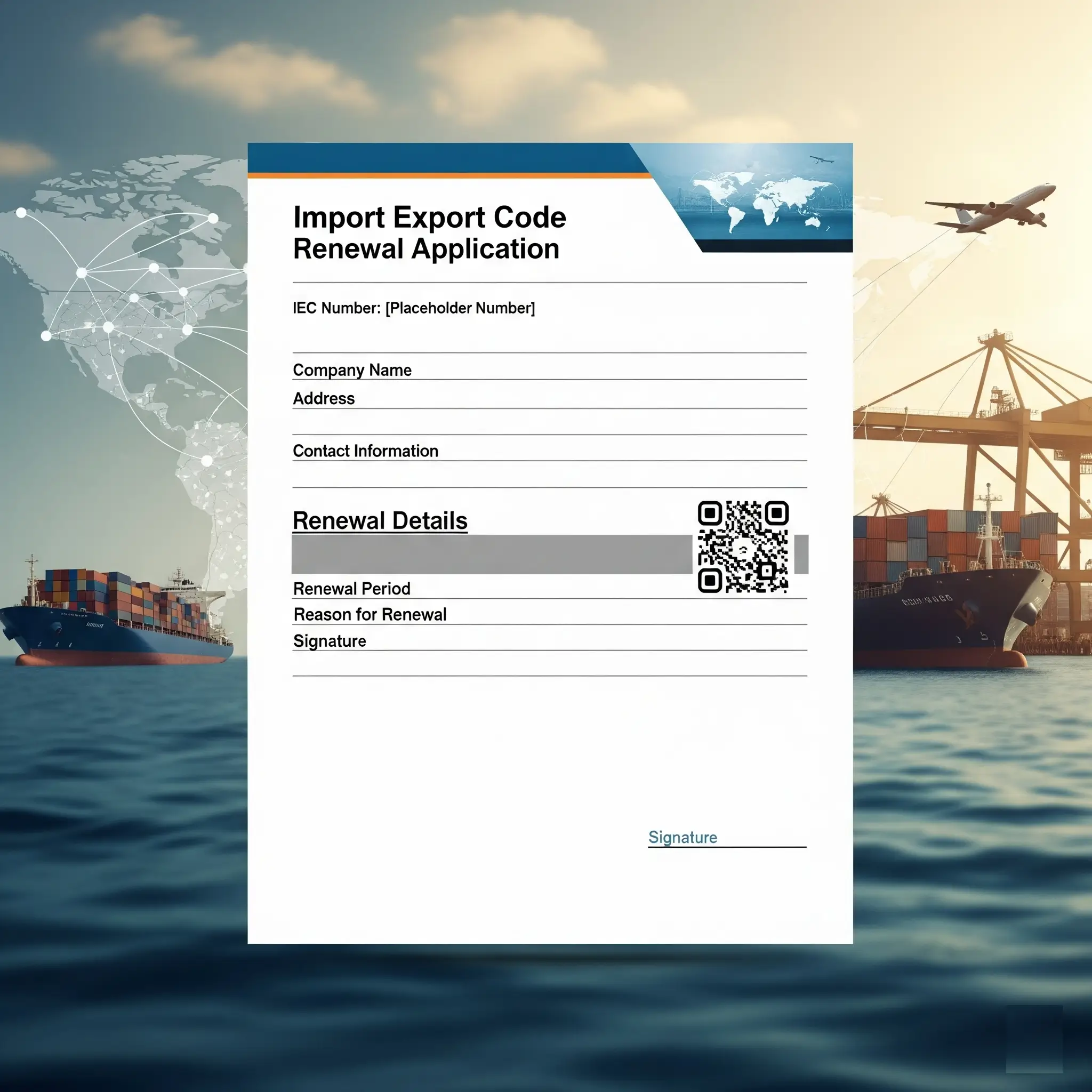1. What is IEC Code?
IEC stands for Import Export Code. It is a 10-digit number issued by DGFT (Directorate General of Foreign Trade). It is mandatory for any individual or business in India that wants to import or export goods or services.
2. Is IEC Code valid for a lifetime?
Yes, the IEC number itself is valid for life. However, as per DGFT rules, every IEC holder must update or confirm their IEC details every year between April 1 and June 30, to keep it active.
3. What is IEC Code Renewal?
IEC Code Renewal means confirming or updating your IEC details once a year on the DGFT portal. If no changes are required, you just need to log in and confirm the existing details.
4. Is IEC renewal mandatory?
Yes, it is mandatory for all IEC holders—even if there have been no changes in the business or the IEC has not been used.
5. What happens if I don’t renew my IEC?
If you fail to renew your IEC by June 30, it gets automatically deactivated. You will not be able to:
- Clear goods through customs
- Receive export payments
- Avail government export benefits
To use it again, you must reactivate it by submitting the update online.
6. What is the deadline for IEC renewal in 2025?
The renewal period for 2025 is from April 1, 2025, to June 30, 2025. It’s best to complete it early to avoid technical issues or deactivation.
7. Is there any government fee for IEC renewal?
- No, there is no fee for simply confirming the IEC.
- If you make any changes or modifications, a ₹200 fee may apply.
8. Do I need to upload any documents for renewal?
- If no changes are made: No documents are needed.
- If changes are made: you may need to upload proof like:
- PAN card
- Address proof
- Canceled cheque
- Aadhaar (for verification)
9. How do I renew my IEC code online?
Steps to renew:
- Visit the DGFT portal
- Log in using your credentials
- Go to “Update IEC”
- Review and confirm or modify details
- Submit using Aadhaar OTP or DSC
10. What are the modes of signing the IEC renewal?
You can authenticate the renewal using:
- Aadhaar OTP (ideal for individuals or proprietors)
- Digital Signature Certificate (DSC) (common for companies and LLPs)
11. Do I get a new IEC after renewal?
No. You keep the same IEC number. Only your certificate is updated, showing the latest details.
12. Can I change details like bank account or address during renewal?
Yes, you can modify details like:
- Bank account number
- Business address
- Contact information
- Director/partner details
You may need to upload supporting documents.
13. What happens if I miss the renewal deadline?
Your IEC will be deactivated, and you cannot use it for importing or exporting. You must log in to the portal, submit the update, and your IEC will be reactivated.
14. Can I still renew my IEC after it gets deactivated?
Yes. Even after deactivation, you can log in, submit the update, and your IEC will be reactivated, usually within hours. No late penalty is charged, but trade operations get delayed.
15. Do I need to renew IEC if I didn’t do any import/export last year?
Yes. Even if your business was inactive, IEC renewal is still mandatory to keep the code active.
16. Can a consultant or CA file my IEC renewal?
Yes, you can hire a professional service provider, CA, or legal consultant to file the IEC renewal on your behalf. They may charge a service fee, but the process can also be done easily by you online.
17. What if I forgot my DGFT portal login details?
Use the “Forgot Password” option on the DGFT portal or contact DGFT helpdesk for assistance. Always keep login details secure and accessible.
18. Do I have to print and submit anything offline?
No. The entire process is completely online. There is no need to visit any office or submit physical forms.
19. How do I check the status of my IEC?
You can:
- Log in to the DGFT portal
- Go to “My IEC” section
- View or download the latest IEC certificate
- The status (Active/Inactive) will be shown
20. Is it safe to use Aadhaar OTP for signing?
Yes. Aadhaar OTP is secure, quick, and officially accepted by DGFT for IEC verification. It’s especially convenient for sole proprietors and individual applicants.












